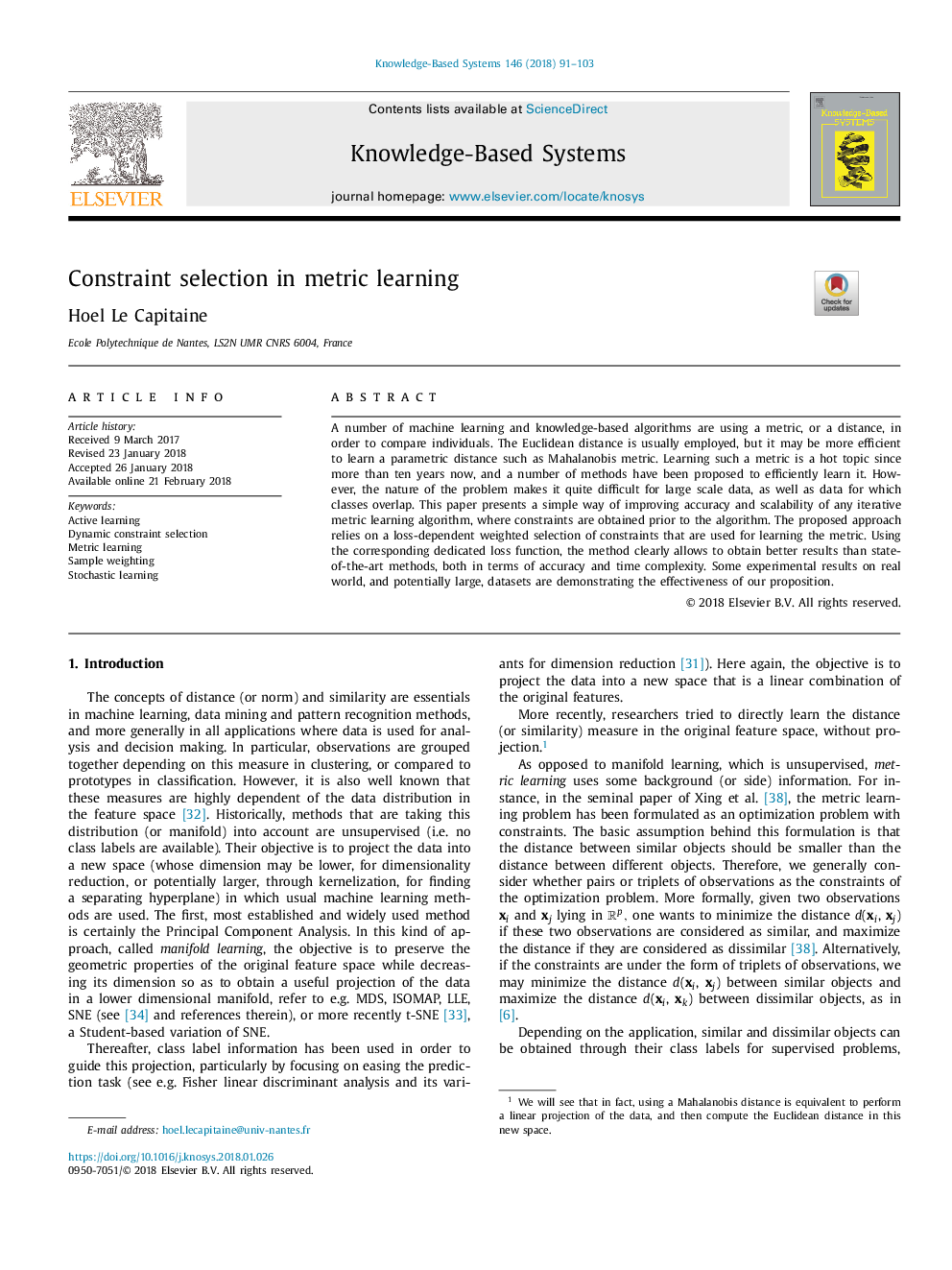| Article ID | Journal | Published Year | Pages | File Type |
|---|---|---|---|---|
| 6861593 | Knowledge-Based Systems | 2018 | 13 Pages |
Abstract
A number of machine learning and knowledge-based algorithms are using a metric, or a distance, in order to compare individuals. The Euclidean distance is usually employed, but it may be more efficient to learn a parametric distance such as Mahalanobis metric. Learning such a metric is a hot topic since more than ten years now, and a number of methods have been proposed to efficiently learn it. However, the nature of the problem makes it quite difficult for large scale data, as well as data for which classes overlap. This paper presents a simple way of improving accuracy and scalability of any iterative metric learning algorithm, where constraints are obtained prior to the algorithm. The proposed approach relies on a loss-dependent weighted selection of constraints that are used for learning the metric. Using the corresponding dedicated loss function, the method clearly allows to obtain better results than state-of-the-art methods, both in terms of accuracy and time complexity. Some experimental results on real world, and potentially large, datasets are demonstrating the effectiveness of our proposition.
Related Topics
Physical Sciences and Engineering
Computer Science
Artificial Intelligence
Authors
Hoel Le Capitaine,
